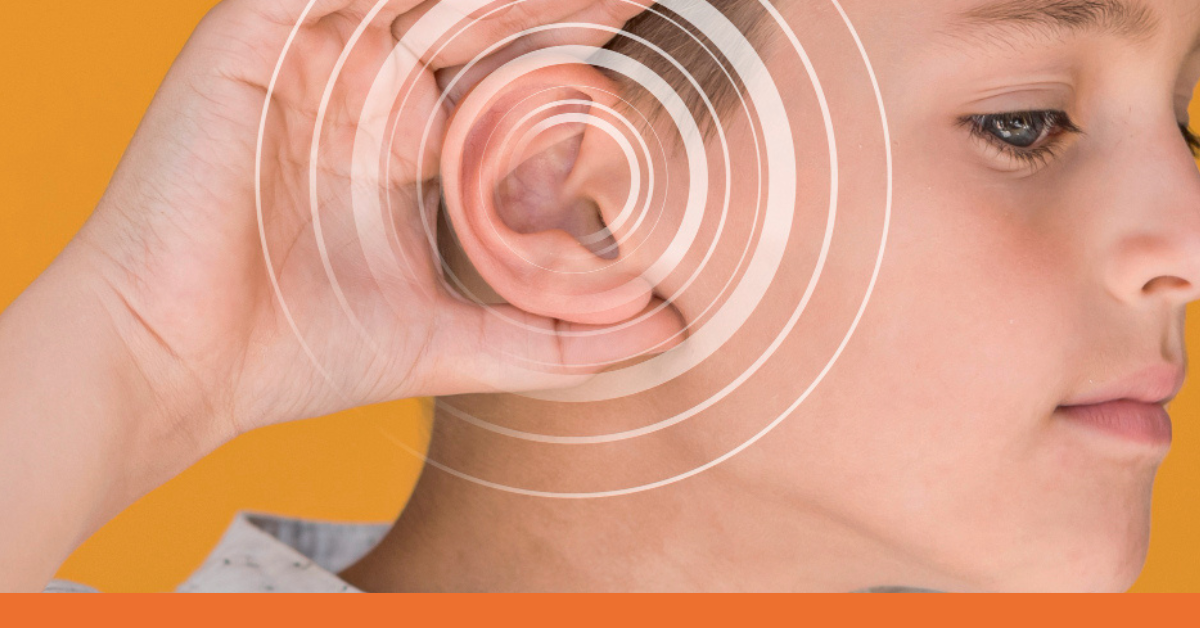
Hearing loss in children is a critical issue that requires immediate attention and comprehensive care. A primary care doctor in Southington, CT, plays a pivotal role in diagnosing, treating, and managing hearing loss to ensure a child’s overall well-being and development. Let’s delve into how a primary care doctor in Southington, CT, can assist children with hearing loss, from early intervention to special education and beyond.

✔️ Early Intervention is crucial for children with hearing loss.
✔️ Special Education programs can be tailored to meet individual needs.
✔️ Medical and Surgical Aids can significantly improve the quality of life.
✔️ Assistance in Learning Languages is often required for holistic development.
The role of a primary care doctor in Southington, CT, in the early intervention of hearing loss in children cannot be overstated. Early intervention is a systematic program of therapy, exercises, and services designed to mitigate developmental delays that may be caused by hearing loss. The sooner the intervention begins, the better the outcomes will likely be.
An early diagnosis by a primary care doctor in Southington, CT, is crucial for effectively managing and treating hearing loss in children. The first few years of a child’s life are a critical period for speech and language development. Any form of hearing loss can severely impact this natural progression, leading to delays in speech, social difficulties, and academic challenges.
Age Group | Effectiveness of Intervention by a Primary Care Doctor |
0-3 years | High |
4-6 years | Moderate |
7+ years | Low |
The table shows that intervention effectiveness is highest when hearing loss is diagnosed and managed early, ideally by a primary care doctor in Southington, CT.
A primary care doctor is often the first healthcare professional a child encounters. They are trained to perform basic hearing tests and can identify symptoms of hearing loss during regular check-ups. If a primary care doctor in Southington, CT, suspects hearing loss, they can make referrals to audiologists or other specialists for more comprehensive tests.
The first step in early intervention is conducting hearing tests, which are usually performed by a primary care doctor in Southington, CT. These tests are non-invasive and can be done even on newborns. They include procedures like Otoacoustic Emissions (OAE) Tests and Auditory Brainstem Response (ABR) Tests.
After initial tests by a primary care doctor, a referral may be made for more in-depth analysis by an audiologist or an Ear, Nose, and Throat (ENT) specialist. These specialists can confirm the diagnosis and suggest a course of treatment, which may include hearing aids, cochlear implants, or other medical interventions.
Once a diagnosis is confirmed, the primary care doctor in Southington, CT, and other healthcare providers and family members will create an Individualized Family Service Plan (IFSP). This plan outlines the child’s needs and the required services, including speech therapy, occupational therapy, and educational services.
Regular follow-ups with the primary care doctor are essential to monitor the child’s progress and make necessary adjustments to the treatment plan. These visits may include additional hearing tests, evaluations of the child’s developmental milestones, and assessments of any hearing aids or other devices the child may be using.
The benefits of early intervention go beyond immediate treatment. Children who receive early intervention services are more likely to succeed in school, have better social skills, and are better equipped to live independently as adults. The primary care doctor in Southington, CT, is vital in initiating this life-changing intervention.

Special education is a tailored educational program designed to meet the unique needs of children with various disabilities, including hearing loss. A primary care doctor in Southington, CT, plays a significant role in diagnosing the condition early and helping parents navigate the complex world of Individualized Education Programs (IEPs).
The journey towards securing a suitable educational environment for a child with hearing loss often begins at the office of a primary care doctor in Southington, CT. After diagnosing a child with hearing loss, the primary care doctor can provide parents with valuable resources and referrals to educational consultants and special education services. This initial guidance is crucial for parents overwhelmed by their child’s diagnosis.
An Individualized Education Program (IEP) is a legally binding document that outlines the educational services a child with a disability will receive. The IEP is developed by professionals, including educators, therapists, and often a primary care doctor in Southington, CT, who can provide medical insights into the child’s condition.
A primary care doctor in Southington, CT, can assist in several ways when it comes to IEPs:
An effective IEP should include:
The primary care doctor in Southington, CT, can contribute to each component by providing a comprehensive medical understanding of the child’s hearing loss and its implications on their learning capabilities.
While professionals like a primary care doctor in Southington, CT, play a significant role, parental involvement is crucial for the success of an IEP. Parents should:
Navigating the world of special education can be overwhelming. Parents may face challenges such as:
In such cases, the guidance of a primary care doctor in Southington, CT, from reputable clinics such as DOCS Primary Care – Southington can be invaluable. They can refer parents to educational advocates or legal experts specializing in special education law.
Children with hearing loss can achieve academic success and develop essential life skills with the right IEP and medical support from a primary care doctor in Southington, CT. The benefits of special education extend beyond the classroom, setting the child up for long-term success and independence.

The Early Hearing Detection and Intervention Program (EHDI) is a comprehensive approach to identifying hearing loss in newborns, infants, and young children as early as possible. This program is often spearheaded by a primary care doctor in Southington, CT, who can initiate the diagnostic process and guide parents through the subsequent steps. The ultimate goal is facilitating early language development and better academic performance for children with hearing loss.
The first step in the EHDI process is universal newborn hearing screening, often conducted by a primary care doctor in Southington, CT, before the baby leaves the hospital. This screening is crucial for the early identification of potential hearing issues.
The next step is a comprehensive diagnostic evaluation if the screening indicates a potential issue. While the initial screening can be conducted by a primary care doctor in Southington, CT, this in-depth evaluation is usually performed by an audiologist.
Once a diagnosis is confirmed, intervention services can begin, often coordinated by the primary care doctor in Southington, CT. These services may include hearing aids, cochlear implants, other assistive devices, and speech and language therapy.
A primary care doctor in Southington, CT, is often the linchpin in the EHDI program. They are usually the first to screen newborns for hearing loss and are responsible for referring those who fail the screening to specialists. Their ongoing role in monitoring the child’s development and coordinating with other healthcare providers ensures that the child receives comprehensive care.
The primary care doctor in Southington, CT, often works with audiologists, speech therapists, and educators to provide a holistic approach to managing hearing loss in children. They ensure that all aspects, from medical to educational and emotional, are addressed.
Parents often look to their primary care doctor in Southington, CT, for guidance and support. The doctor can provide valuable information about the EHDI program, what to expect at each stage, and how to access various services and resources.
While the EHDI program is highly beneficial, it’s not without its challenges, such as:
Access to Services: Not all areas have easy access to specialized care. In such cases, the primary care doctor in Southington, CT, can offer telehealth consultations or refer parents to services in nearby areas.
Medical aids for hearing loss are designed to improve the auditory experience of individuals, enabling them to communicate more effectively and participate more fully in daily activities. These aids range from hearing aids to cochlear implants. A primary care doctor in Southington, CT, often recommends them after a thorough evaluation of the patient’s condition.
Hearing aids are electronic devices that amplify sound. They are most effective for individuals with mild to moderate hearing loss. A primary care doctor in Southington, CT, can refer patients to an audiologist for a more detailed evaluation to fit the hearing aid.
Hearing aids contain a microphone, amplifier, and speaker. The microphone picks up sound, the amplifier increases the volume, and the speaker delivers the amplified sound into the ear. Modern hearing aids also come with various features like noise reduction, rechargeable batteries, and smartphone connectivity.
For those with severe hearing loss, cochlear implants may be recommended. Unlike hearing aids, which amplify sound, cochlear implants bypass the damaged parts of the ear to stimulate the auditory nerve directly. The recommendation for a cochlear implant often comes from a team of healthcare providers, including a primary care doctor in Southington, CT.
A cochlear implant consists of an external part behind the ear and a second part surgically placed under the skin. The implant converts sound signals into electrical impulses, which are then sent directly to the auditory nerve.
When it comes to selecting a medical aid for hearing loss, several factors come into play:
Proper maintenance is crucial for the longevity and effectiveness of medical aids. This includes regular cleaning, battery replacement, and periodic checks with healthcare providers. A primary care doctor in Southington, CT, can provide guidelines on taking care of your medical aids and may also recommend periodic evaluations to ensure they are functioning correctly.
Medical aids can significantly improve the quality of life for individuals with hearing loss. They can enhance social interactions, increase independence, and even improve cognitive function by reducing the strain of trying to understand speech. The guidance of a primary care doctor in Southington, CT, in choosing the right medical aid can be invaluable in this life-changing decision.

Language development is critical to any child’s growth, especially for those with hearing impairments. While medical aids can significantly improve auditory capabilities, additional support is often required to assist in learning languages. Doctors play a pivotal role in guiding parents and caregivers through the various methods and strategies that can be employed to facilitate language acquisition in hearing-impaired children.
Visual aids like flashcards and picture books can effectively teach new words and concepts. They provide a visual context to the spoken word, making it easier for the child to understand and remember.
Sign language can be a powerful tool for communication for children with severe hearing loss. While it’s a different form of language, it allows the child to express themselves and understand others.
Literacy skills are closely tied to language development. Encouraging reading and writing from an early age can significantly improve vocabulary and understanding of language structure.
Language is learned best when it’s used in real-life situations. Interactive activities like storytelling, role-playing, and simple conversations can provide practical experience in using language.
One of the significant challenges hearing-impaired children face is social stigma. The lack of understanding and awareness about hearing impairment often leads to social isolation, which can further hinder language development.
Not all regions have easy access to specialized speech and language services. This lack of access can delay the initiation of language learning assistance, leading to further developmental delays.
Language development programs and speech therapy sessions can be expensive, and not all families can afford these services. Doctors can guide parents toward more budget-friendly options, such as online resources or community programs.
Doctors can provide invaluable support in overcoming these challenges. They can offer referrals to social workers or psychologists who can work with the family to address social stigma. They can also provide information on government grants or scholarships that can offset the cost of specialized services.
The benefits of language learning assistance go beyond immediate developmental gains. Improved language skills can lead to better academic performance, enhanced career opportunities, and a more fulfilling social life. Doctors, with their initial diagnosis and ongoing support, lay the foundation for these long-term benefits.
Hearing loss can be detected as early as shortly after birth through newborn hearing screening tests. These tests are usually conducted before the baby leaves the hospital and are non-invasive. If the initial screening indicates a potential issue, more comprehensive tests are performed by audiologists to confirm the diagnosis. Early detection is crucial for effective intervention and better developmental outcomes.
There are several types of hearing aids available, each with its own set of features and benefits:
A primary care doctor in Southington, CT, plays a significant role in the early detection of hearing loss, which is the first step in language development intervention. After the initial diagnosis, the doctor can guide parents through the various options for medical aids like hearing aids or cochlear implants. They can also provide referrals to speech therapists and recommend language development programs.
At Docs Primary Care – Southington, we understand that health is a lifelong journey, and we’re here to support you and your family every step of the way. Whether it’s a routine check-up, specialized care, or guidance on wellness practices, our dedicated team is committed to providing you with the quality care you deserve.
Contact us today to schedule an appointment!
An Individualized Education Program (IEP) is a legally binding document that outlines the educational services a child with a disability will receive. The IEP is developed by professionals, including educators, therapists, and often a primary care doctor in Southington, CT, who can provide medical insights into the child’s condition.
A primary care doctor in Southington, CT, can assist in several ways when it comes to IEPs:
An effective IEP should include:
The primary care doctor in Southington, CT, can contribute to each component by providing a comprehensive medical understanding of the child’s hearing loss and its implications on their learning capabilities.


During this surge in COVID-19 cases, our primary focus is meeting the high demand for tests, and we are seeing higher than usual wait times. This means we are unable to answer most phone calls. Please know that our teams are working very hard during this time to care for as many patients as safely as possible. Please click the button below for answers to common questions. We appreciate your understanding.